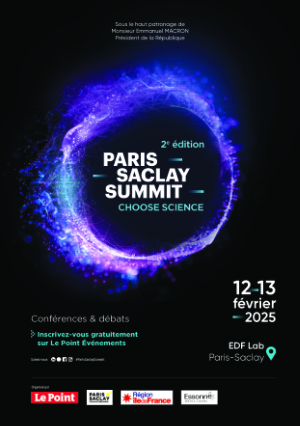PhD student position: Investigating the Role of Circadian Rhythms in Post-Operative Inflammation and Recovery
| ABG-127997 | Sujet de Thèse | |
| 17/01/2025 | Contrat doctoral |

- Biologie
- Santé, médecine humaine, vétérinaire
Description du sujet
Project Overview
The successful candidate will actively contribute to groundbreaking research examining the intricate relationship between circadian rhythms and post-operative inflammation. This project aims to unravel how the timing of biological processes influences surgical outcomes, paving the way for innovative, time-aligned interventions to enhance recovery.
The project relies on advanced mouse models of vascular microsurgery combined with state-of-the-art “OMICs” approaches to explore inflammatory dynamics across circadian phases and investigate the regulatory role of circadian clock genes in modulating the immune response. The project also incorporates preoperative nutritional strategies inspired by Enhanced Recovery After Surgery (ERAS) protocols in human medicine to optimize surgical care and patient recovery.
What We Offer
- A stimulating and collaborative research environment in a world-class hospital and academic setting.
- Access to cutting-edge facilities and resources for translational research.
- Opportunity to work on impactful research with direct clinical relevance.
- Opportunities to present your work at international conferences.
- Support for career development through training, mentoring, and conference participation.
Prise de fonction :
Nature du financement
Précisions sur le financement
Présentation établissement et labo d'accueil
The CVA lab Mission
To find, develop and apply new therapies for the treatment of vascular diseases.
Vascular diseases are the leading cause of death and disability in the western world. In order to prevent disease development and develop preventive strategies, a complete understanding of basic cellular and molecular mechanisms is necessary.
Our research group is at the center of the vascular surgery department, which belongs to the DCV (Département Cœur Vaisseau) of the CHUV (Centre Hospitalier Universitaire Vaudois).
Our group has put in place a translational platform with advanced cell- and molecular biology and animal models, in combination with patient-centered research.
The close proximity between clinical vascular surgery and research creates a unique platform for the resolution of issues of immediate concern for clinical care as well as breeding of future clinical academic leadership.
Our goal is to better understand the processes associated with peripheral vascular diseases such as Peripheral artery disease (PAD) and Abdominal aortic aneurysm (AAA) associated with inflammation and vascular repair. We are also developing a new research line focused on surgical stress and post-operative recovery.
Intitulé du doctorat
Pays d'obtention du doctorat
Etablissement délivrant le doctorat
Profil du candidat
We are seeking a highly motivated and talented PhD or MD-PhD candidate to join our Translational Research Laboratory in the Department of Vascular Surgery at CHUV, a leading research hospital in Switzerland.
Your Role
- Design and perform experiments in mouse models of microsurgery, molecular analyses and in vitro cell culture systems.
- Analyze data, write scientific publications, and present findings at international conferences.
- Collaborate with a multidisciplinary team of researchers and surgeons, including experts in physiology and chronobiology.
Your Profile
- Master’s degree in Biology, Medicine, Physiology, or a related field.
- Strong background in vascular diseases and biology, or metabolism is an advantage.
- Hands-on experience with animal models and surgical techniques is highly desirable.
- Previous experience in omics data analyses and R coding is a plus.
- Excellent communication skills and proficiency in English.
Vous avez déjà un compte ?
Nouvel utilisateur ?
Vous souhaitez recevoir nos infolettres ?
Découvrez nos adhérents
 Groupe AFNOR - Association française de normalisation
Groupe AFNOR - Association française de normalisation  ONERA - The French Aerospace Lab
ONERA - The French Aerospace Lab  MabDesign
MabDesign  ADEME
ADEME  Institut Sup'biotech de Paris
Institut Sup'biotech de Paris  MabDesign
MabDesign  CESI
CESI  Aérocentre, Pôle d'excellence régional
Aérocentre, Pôle d'excellence régional  PhDOOC
PhDOOC  Institut de Radioprotection et de Sureté Nucléaire - IRSN - Siège
Institut de Radioprotection et de Sureté Nucléaire - IRSN - Siège  CASDEN
CASDEN  Nokia Bell Labs France
Nokia Bell Labs France  ANRT
ANRT  Ifremer
Ifremer  Tecknowmetrix
Tecknowmetrix  TotalEnergies
TotalEnergies  SUEZ
SUEZ  Généthon
Généthon  Laboratoire National de Métrologie et d'Essais - LNE
Laboratoire National de Métrologie et d'Essais - LNE





